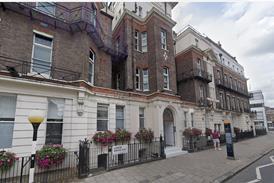Martin Maloney
630 comments By Martin Maloney
"The point is not to punish them [criminals] further, but to reduce the likelihood of them re-offending when they leave."
Oh, Lord. To labour the obvious, the point of prisons is:
(1) To punish them - "further" than what exactly the learned writer doesn't make clear, since what punishment did they receive apart from prison?
(2) To reduce (if possible) the likelihood of them re-offending when they leave.
(3) To protect the law-abiding from their violence and dishonesty until they leave.
Up until about 30 years ago not even the least learned member of the public would have had any difficult answering this supposed conundrum.
The rule of law and democracy are distinctly not of equal importance in a civilized society - or equatable in any meaningful sense. As an example, Hong Kong under British governance had the rule of law in excelsis, but no democracy. Some African, Asian and South American countries today have democracy but no law. It would be interesting to know in each case which of the two "the people" would choose if they had to make a choice, or the power to make one. If "civilization" were the criterion I'd expect the rule of law to win by a large majority.
In young Axel's case, let us us hope that his majesty's pleasure will be life. As for Miss Letby, we can only wait and see what the future holds.
Neither is Hong Kong a "sovereign state", Anon the Last. The report is about breaches of international law by governments: in the case of HK, the Chinese Communist Party; in the case of Gaza, Hamas. According to Wikipedia, "Hamas has governed the Gaza Strip in Palestine since its takeover of the region from rival party Fatah in June 2007."
America (let us hope) has saved itself by its elections, and may yet save Europe by its example.
Shocking to see all these anonymi belittling Sir Keir's achievement in salvaging the British economy after 54 years of Tory mismanagement.
This looks like gratuitously moralistic self-indulgence on the part of the judges at the expense of good relations with the US. As Mr Turek points out, Assange is not facing capital charges, and free speech is not in issue, as Mr Ryan notes; while the demand for an assurance that Assange will not be "prejudiced at trial by reason of his Australian nationality" is nothing more than a piece of judicial impudence. Imagine the outcry among the British Great and Good if such insinuations were made by American judges against a Labour government or our revered Supreme Court.
S.21 has been God's gift to tenants, especially with the ever-lengthening list of statutory compliances required of landlords before they can even serve a valid notice (Housing Act 2004, Deregulation Act 2015, Tenant Fees Act 2019) not to mention the Monty Shooltz/Trecarrell case law which has brought back the days of assured tenancies by default, at least for tenants lucky enough to have gas. The Great and Good, purporting to act in tenants' interests, now want to obliterate all the loopholes that have enabled many tenants to keep their homes for years after service of the initial s.21. Contrary to popular belief, the so-called Renters (Reform) Bill does not abolish "no-fault evictions". On the contrary, it introduces or strengthens a whole raft of "no fault" grounds for possession without (so far, at least) guaranteeing any of the existing s.21 loopholes.
Dear Anon @ 12:27, if you don't understand that the ECJ and the European Commission, not the ECHR, will be the final arbiter of all things "European" in a future EU state, I'm afraid you don't know as much about the EU as you apparently think you do. I found this deficiency to be fairly typical of Remain voters during and after the referendum campaign. I'm sure however that Mr G takes the point.
Well then, let's suppose that the hero of Mr Goldsmith's fairy tale had not "recently departed from the EU" but had remained comfortably ensconced in Brussels, a Brussels now become what Brussels is intended to be, the governing seat of a federal European state; and let's suppose further that the "European Court of Justice" - which is even less a court of justice than the UK parliament is - had determined Rwanda to be "safe". Then along comes the Law Society of England and Wales, saying (quite "properly") that this ‘sets a dangerous legal and constitutional precedent by legislating to overturn an evidence-based finding of fact by UK courts and preventing them from providing legal oversight’. Does this version of the fairy tale have a better or happier ending than the version postulated by Mr G?
Sorry to explode Mr Goldsmith's romantic dichotomy, but (speaking as a lawyer) I do not see, and never have seen, lawyers either as heroes "heroically performing the roles that society has allocated to us" or as villains "guilty of exercising power without responsibility". If Mr G wants to cast himself as a hero I've no problem with that. Personally I've always seen myself as a bit-part player doing a routine job, a job no less but certainly no more powerful or praiseworthy than the man emptying the dustbins or the woman on the supermarket checkout. In fact I must confess that Mr G's self-aggrandising rhetoric (not for the first time) makes my skin creep, just a little.
I mean it as a compliment when I say that Paul doesn't look anywhere near old enough to remember foolscap.
Of course jurors should follow their conscience. They are ultimately the arbiters of law as well as of fact. It was juries' refusing to convict, in the teeth of the law and evidence, that led to the abolition of the death penalty for minor crimes - at least, so we have always understood. The difficulty arises in cases such as the present one, and that relating to the criminal damage in Bristol, where individual jurors have no conscience and appeal to their prejudices and political opinions as a substitute.
I'm afraid Mr Hickman's reaction to my post only proves the point that, when the EU is in question, some former Remain voters are not remarkable for a capacity to argue. The distinction is between whether participation in an international alliance or economic grouping, is intergovernmental (hence in the last resort susceptible of control by elected national parliaments) or supranational (in which case it isn't). Whether or not the grouping in question is "European" is wholly immaterial. It was Mr H himself in his original post who conflated the two opposite ideas, so he shouldn't complain of my emphasising the difference.
Mr Hickman seems to be unaware of the difference between intergovernmental and supranational authority, yet this distinction was and is fundamental to the "debate on Europe". No one (pace Mr H) believes that all "decision-making which affects UK interests should be taken in the UK" since this would rule out the possibility of any effective collaboration between states, as for example in Nato. But a majority of us did (and I trust still do) believe that the power to delegate such decision-making should not be irrevocably surrendered to a nascent supranational European state devoid of democratic accountability and lacking the convinced adhesion of its component peoples. Like so many vociferous Remainers, Mr Hickman's only essential argument against his opponents is that they don't share his opinions.
Well, John, what better evidence does Laurence Mann have for his statement about the “dwindling numbers of Brexit supporters”? The evidence of national opinion polls. The maximum opinion poll sample is around 1000 out of a total UK electorate of 46 million, a percentage of 0.002. According to its publishers the LSG website has 21,000 “daily unique browsers” (dreadful phrase but let it pass) of whom at least 32 have voted on this thread (see vote on the comment at 12:22 30th October), a percentage of 0.152. The LSG poll would therefore appear to be 76 times more likely to be representative of the opinion of the legal profession than national opinion polls are of the opinion of the British public. And let’s not forget that professional persons are generally believed to be more Eurocentric than the bulk of the population. Do you see any flaw in my methodology?
Laurence Mann speaks of "the dwindling numbers of supporters of Brexit". Supporters of the EU are dwindling even faster, if the comments and votes on this thread are any guide.
Anon the Last (aka I assume Anon @ 2.50pm yesterday): you seem to have a penchant for insinuating that anyone whose experience differs from your own is lying, or at best stupid. That character trait would be far more impressive if you came out from behind that curtain of anonymity.
As regards Anon's claim at 2.50pm that he does "not believe for one moment that police took no action to obtain CCTV footage" let me recount an experience from twenty-odd years ago. In one of my only ever criminal cases the client was charged with leaving a store with stolen goods. Her explanation was that she was queuing to pay and had gone outside temporarily to attend to her baby who was screaming. She was detained a few moments later by the store detective. The store had CCTV commanding a clear view of the exit and surroundings. The footage would have confirmed (or not) the client's story but the police never bothered to ask for it. We opted for crown court trial and the case was immediately dismissed as an abuse of process. We brought actions against the store for wrongful arrest and the police for malicious prosecution. The store settled the claim; the case against the police was withdrawn on the advice of counsel, who pointed out that the police had no duty to investigate anything.
To tell the truth, Terrence, I'd always thought, in my innocence, that the police were only civilians with two or three additional powers tacked on by statute. Else what becomes of the time-honoured cry of "Stop thief!"? The police, after all, are also liable for wrongful arrest, at least in their corporate capacity.
Ultimately it all comes down to spur-of-the-moment decisions. Most of us won't confront a suspected criminal for fear of getting embarrassed, getting publicly ridiculed (thanks to CCTV/social media), getting sued, getting prosecuted, or (most importantly of all) getting hurt. The police are paid to face all these risks, so presumably the author of the article is right to suggest we should leave them to it. Whether that attitude is socially responsible or personally satisfying is another matter.






































Commented on: 16 July 2025
What are prisons actually for?